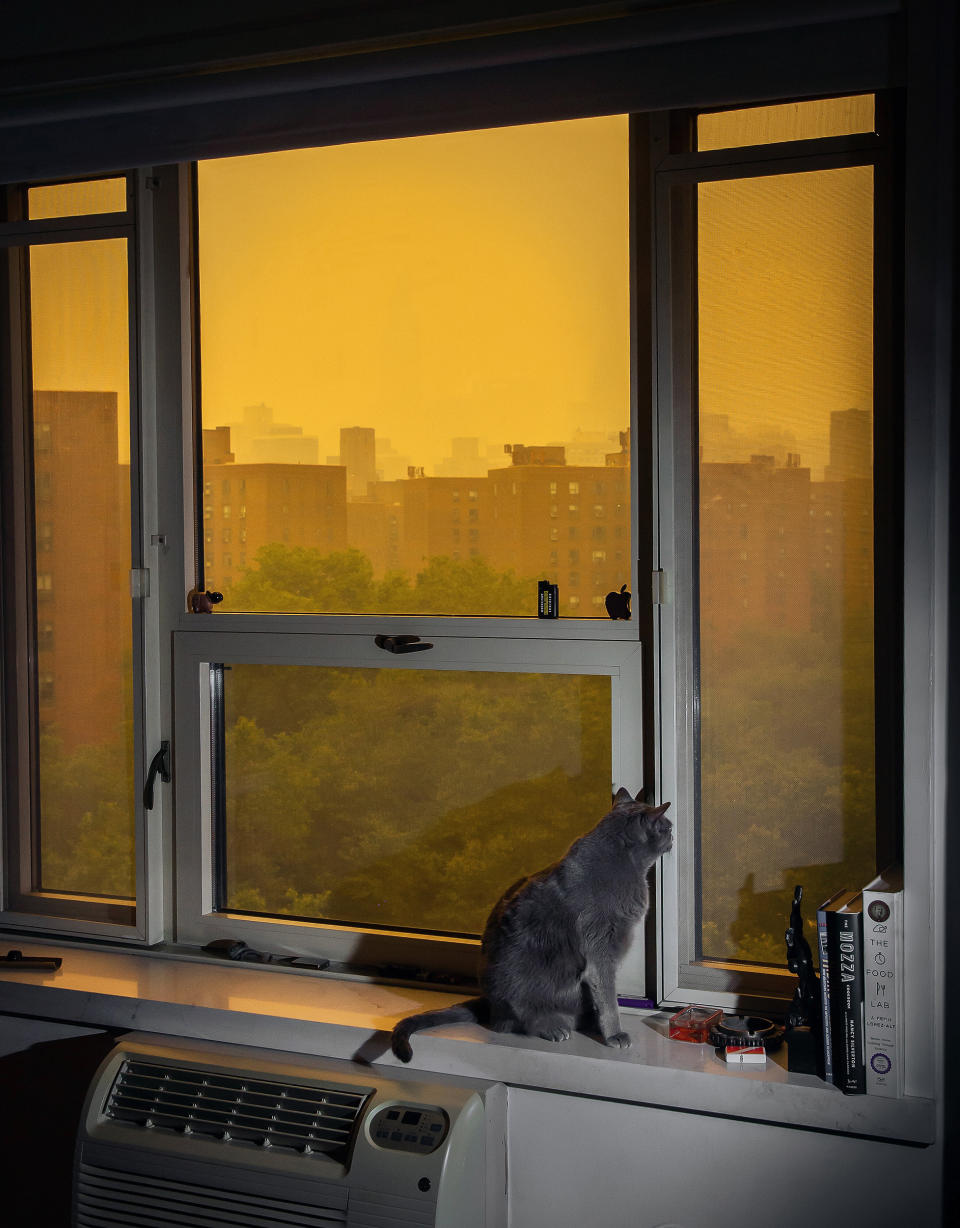How to keep your pet safe in poor air quality, according to veterinarians
If you’re feeling the effects of the smoke from Canadian wildfires, that means your pets are likely feeling it, too.
As hazardous smoke continues to drift south, air quality advisories remain in place for millions around the U.S., with public health officials recommending those affected stay indoors as much as possible. But what does that mean for our furry friends?
Inhaling the smoke can lead to a slew of health effects, such as coughing, wheezing, difficulty breathing, and throat and eye irritation in humans — and the same can happen to animals, even healthy ones, experts say.
However, there are steps you can take to minimize the risk to your pets.

How to keep pets safe during dangerous air quality alerts
First, vets recommend you limit exposure by keeping walks short.
"I would say just for bathroom breaks," Dr. Matt Miller, veterinarian with Gotham Veterinary Center in New York City, tells TODAY.com. "Plan ahead, and look at the predicted air quality over the course of the day, and plan your walks for the time when the air quality index is at the lowest. When it’s cooler outside would also help because dogs thermoregulate through panting so you don’t want to have them panting and breathing in more."
For short-faced breeds like pugs and bulldogs, who are more sensitive to respiratory distress, Miller recommends trying absorbent pads at home and not taking them outside at all.
Next, while indoors, make sure pets have access to clean water at all times. Humid air and keeping the temperature cool are also helpful for dogs to keep them from panting.
Keep the windows closed, and only use your air conditioner if it does not pull air in from outside. Finally, consider getting a HEPA filter. “That’s something especially if you have a sensitive pet that might be worth investing in,” says Miller.
Know the symptoms of smoke inhalation in pets
“The signs of smoke inhalation in pets are coughing, breathing difficulty, shortness of breath, and pets can have an audible wheeze if their upper airway gets irritated and inflamed,” Dr. Jillian DiFazio, a veterinarian with Veterinary Emergency Referral Group in Brooklyn, New York, said in a statement.
The smoke and particles in the air can also affect their eyes, so look for redness, excessive squinting, and discharge, she added.
Cats are also vulnerable to poor air quality. “Cats have asthma pretty commonly. Having air quality that’s as poor as it is, even being indoors, can lead to flare-ups of their asthma,” Miller says.
When to seek treatment
If your pet is relatively healthy and has never had breathing problems before but you're noticing some coughing, Miller says you may not need to bring them in. "The act of getting them out of the house and bringing them in might make things worse," he adds.
However, if your dog or cat appears to be in distress, for example, unrelenting symptoms of panting and loss of appetite, that would be a situation in which you would want to take them to the vet.
For cats and dogs with preexisting conditions, the best course of action is to plan ahead. As we're early into wildfire season, Miller recommends reaching out now to your vet about getting a rescue inhaler to use at home.
"We don't know if this will happen again later this year, but it would be a good thing have a plan for it," he says.
This article was originally published on TODAY.com

